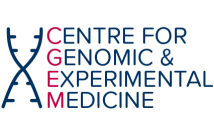Characterisation of IFIH1 gain-of-function
The largest published study to date defines the phenotypic and molecular landscape associated with IFIH1 gain-of-function. January 20.
IFIH1 gain-of-function has been reported as a cause of a type I interferonopathy encompassing a spectrum of autoinflammatory phenotypes including Aicardi-Goutières syndrome and Singleton Merten syndrome. Led by Professor Yanick Crow, a new paper in Human Mutation provides a comprehensive definition of the clinical and interferon status of a cohort of individuals with pathogenic heterozygous mutations in IFIH1.
Ascertainment of patients through a European and North American collaboration identified 74 individuals from 51 families segregating a total of 27 likely pathogenic mutations in IFIH1. All mutations were associated with enhanced type I interferon signalling, including six variants (22%) which were predicted as benign according to multiple in silico pathogenicity programs. The identified mutations cluster close to the ATP binding region of the protein. Remarkably, ten adult individuals, 13.5% of all mutation carriers, were clinically asymptomatic (with seven of these aged over 50 years).
These data confirm variable expression and clinical non-penetrance as important characteristics of the IFIH1 genotype, a consistent association with enhanced type I interferon signalling, and a common mutational mechanism involving increased RNA binding affinity or decreased efficiency of ATP hydrolysis and filament disassembly rate.
Links
Article in Human Mutation journal https://doi.org/10.1002/humu.23975
Prof Yanick Crow Research Group website


